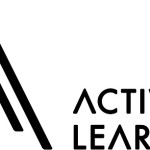Staying on at school after your GCSEs isn’t right for everyone – you might be craving a change of scene, your school might not offer the subjects or qualifications that you want to do or you might want to be a bit more independent.
The raised participation age means that you are likely to be staying in education or training until you are 18. This doesn’t mean that you have to stay at school though – you can go to college and you can also become an apprentice, mixing training with work. Read our apprenticeships page to find out more about these.
What you can study at a college of further education
Colleges of FE offer many courses and at lots of levels, from pre-entry levels right up to degrees. You can study for further GCSEs or re-take any you may not have passed like maths or English. You can also study A-levels or take vocational qualifications such as an NVQ, a Diploma at levels 1 - 3, an HNC (Higher National Certificate) or HND (Higher National Diploma) or a Foundation Degree. All of these qualifications are available in a huge variety of subjects. You can also study for a skilled trade like bricklaying, car mechanics, hair and beauty or hospitality and catering and many colleges of FE have specialist equipment or centres, like recording studios, theatres, dance studios, restaurants or mechanical space for car maintenance.
Apprenticeships
If you are an apprentice, you will attend an FE college probably for one day a week (when you are not working) to study the theory and some practical aspects of your chosen trade. Many colleges work in partnership with employers to offer apprenticeship schemes and offer Diplomas and Certificates of Further Education at various levels, as part of those apprenticeship schemes. To see live apprenticeship opportunities visit www.notgoingtouni.co.uk
HE in FE
You can also study for a degree at an FE College – this is known as HE in FE. This means that you can attend your nearest college of further education, which can provide a higher level of education or vocational training for those who want to learn locally and who do not want to leave home and go away to university to gain a degree for example. HE in FE offers students wider accessibility to HE qualifications and allows more students to participate in, and benefit from continuing their education. HE in FE students are generally funded directly or indirectly, depending on the policies of their particular FE College.
The other advantages of HE in FE over going away to uni include: smaller class sizes, allowing for greater access to tutors and more involvement in open discussions and the fact that you can save money by living at home. Some people might think that you’ll have a better chance of getting a job and impressing your employer if you’ve been to university but it’s not necessarily the case – that depends much more on your marks and the work experience on your CV – both of which are down to you and how hard you study, not where you study!
To find out which courses and qualifications your local FE College has on offer, go to their website or give them a call.
 Moving On magazine Careers and Qualifications for School Leavers
Moving On magazine Careers and Qualifications for School Leavers





 A New Sparta Group Company
A New Sparta Group Company